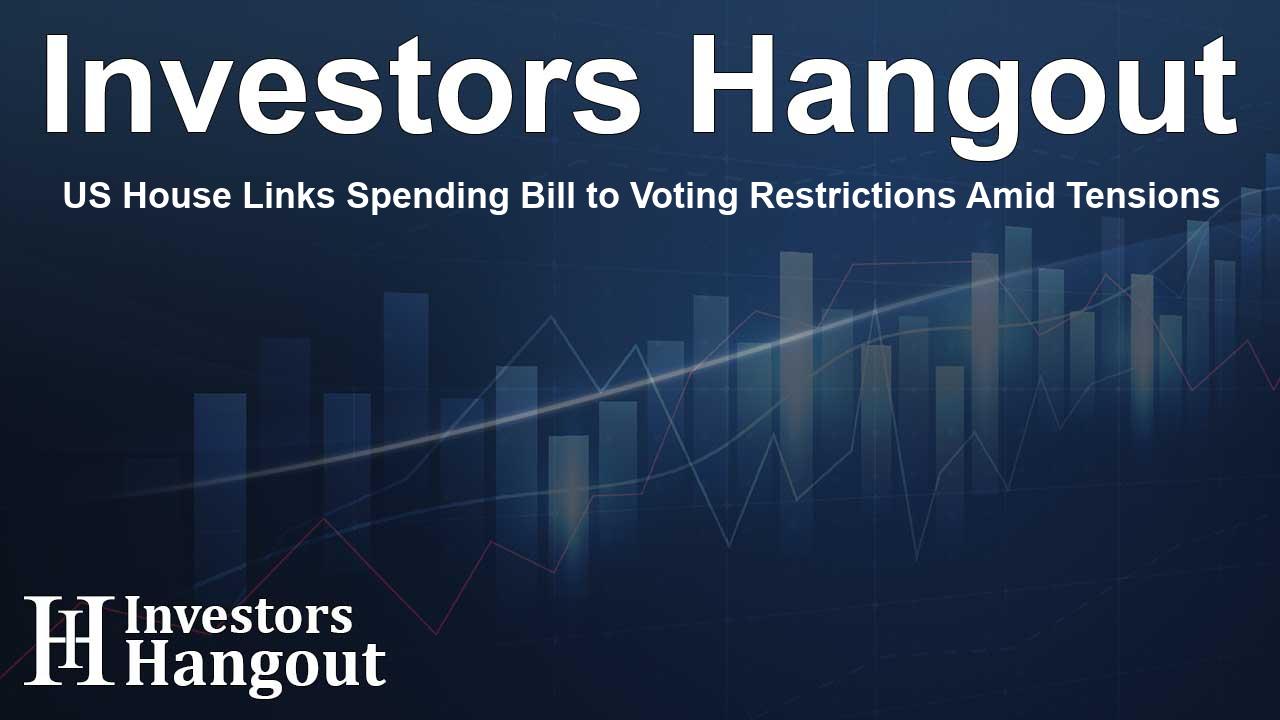US House Links Spending Bill to Voting Restrictions Amid Tensions

US House Bill Combines Spending with Voting Regulations
The Republican-controlled U.S. House of Representatives is gearing up for a crucial vote on a spending bill that also includes stricter voting regulations. This legislative move is expected to spark significant political tension with the Democratic-majority Senate. With the deadline for government funding approaching, this situation raises concerns about a potential partial government shutdown.
Deadline Approaching for Government Funding
Congress is under pressure to pass vital spending legislation before the new fiscal year begins. Failure to do so could lead to the furlough of thousands of federal employees and the suspension of various government operations. The stakes are particularly high with elections around the corner, as lawmakers must ensure that everything is resolved before the upcoming elections impact the budget.
Controversial Voting Measures Spark Debate
The inclusion of a Republican-backed voting bill requires individuals registering to vote to provide proof of U.S. citizenship. This legislative move is influenced by unfounded claims of widespread election fraud. House Republicans are arguing that this measure is essential to safeguard the integrity of elections, while Democrats contend that it is designed to suppress voter turnout. Historical data indicates very few instances of noncitizen voting amidst millions of ballots cast, raising questions about the necessity of such a measure.
Internal Divisions Affecting Legislation
Despite the urgency, the Republican Party is facing internal divisions that could hinder the bill's passage in the House. With only a slim majority, dissenting voices among Republicans are growing louder, and some party members have already voiced their intention to oppose the legislation. Speaker Mike Johnson's previous decision to delay a vote due to lack of support reflects the tumultuous atmosphere within the party.
Likely Senate Rejection
Even if the House manages to pass the bill, it is expected to face a vigorous rejection in the Senate. Leading Senate Republicans, including Mitch McConnell, have expressed reservations about escalating tensions just weeks before an election. McConnell has indicated a preference for solutions that avoid a government shutdown, showing hesitance toward the proposed measures.
Implications for the Debt Ceiling
Adding further urgency to the situation, Congress has another critical deadline looming on January 1. Lawmakers must either raise or extend the national debt ceiling to avert a default on over $35 trillion worth of federal debt. The complexities surrounding this dual legislative challenge compound the already high-stakes environment in Washington.
Conclusion
The convergence of spending legislation and voting requirements sets the stage for a contentious period in U.S. politics. As Congress grapples with these issues amidst looming deadlines, the outcomes will have lasting implications for governance and electoral participation in the country.
Frequently Asked Questions
What is the significance of the U.S. House's spending bill?
The U.S. House's spending bill combines budgetary needs with new voting regulations, making it a key political issue as government funding deadlines approach.
What happens if Congress fails to pass the spending bill?
If Congress does not pass the spending bill, it could result in the furlough of federal employees and a shutdown of government operations.
Why are Republicans pushing for stricter voting regulations?
Republicans argue that stricter voting regulations are necessary to prevent noncitizen voting, influenced by claims of election fraud.
How do Democrats view these voting measures?
Democrats believe that the proposed voting measures are aimed at suppressing voter turnout rather than ensuring election integrity.
What is the upcoming deadline regarding the national debt ceiling?
Congress faces a critical deadline on January 1, by which it must raise or extend the national debt ceiling to avoid defaulting on federal debt.
About The Author
Contact Kelly Martin privately here. Or send an email with ATTN: Kelly Martin as the subject to contact@investorshangout.com.
About Investors Hangout
Investors Hangout is a leading online stock forum for financial discussion and learning, offering a wide range of free tools and resources. It draws in traders of all levels, who exchange market knowledge, investigate trading tactics, and keep an eye on industry developments in real time. Featuring financial articles, stock message boards, quotes, charts, company profiles, and live news updates. Through cooperative learning and a wealth of informational resources, it helps users from novices creating their first portfolios to experts honing their techniques. Join Investors Hangout today: https://investorshangout.com/
The content of this article is based on factual, publicly available information and does not represent legal, financial, or investment advice. Investors Hangout does not offer financial advice, and the author is not a licensed financial advisor. Consult a qualified advisor before making any financial or investment decisions based on this article. This article should not be considered advice to purchase, sell, or hold any securities or other investments. If any of the material provided here is inaccurate, please contact us for corrections.
